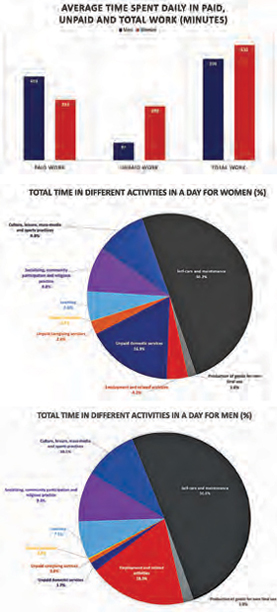
CORPORATE CITIZEN CLAPS FOR THE INGENUITY IN DEVELOPING ACCESSIBLE AND COST EFFECTIVE HEALTHCARE SOLUTIONS AND TO THE 2020 ‘ANJANI MASHELKAR INCLUSIVE INNOVATION’ AWARDS (AMIIA)

Constituted by Padma Vibhusahan Dr R. A. Mashelkar in 2011, under the aegis of International Longevity Centre India, the annual AMIIA recognises solutions developed for the under priviledged and established in the memory of Dr Mashelkar's late mother. The AMIIA 2020 goes to two healthcare maverick ideas-a multifunctional health monitor developed by innovators, Mudit Dandawate and Gaurav Parchani of Dozee and engineer M Senthil Kumar's Savemom, an IoT-based maternal healthcare solution by Jiovio Healthcare. Dozee, manufactured by Turtle Shell technologies is a thin sensor sheet when placed underneath a mattress essentially measures sleep. The device is available at 1/10th cost of other existing devices providing continuous, contact free monitoring with remote monitors and alert systems that essentially converts a regular hospital bed into an ICU-bed within minutes. It measures micro-vibrations in the body generated by the heart pumping blood, detects respiration, muscle twitches, tremors, and other movements. "It gives you a sleep score, determines stress levels, and heart rate. The data can be used by a health professional to monitor abnormalities in a patient's heart rates, sleep patterns, and more," said Mudit Dandawate, co-founder Turtle Shell. The low-cost health kit developed by Madurai engineer, M Senthil Kumar, is a digital wearable remote technology that monitors pregnant women in rural India at just a rupee per day. It tracks the expectant mom's heartbeat, blood pressure, glucose levels, metabolic rate and sleep cycles. "The woman just has to wear the necklace or bracelet and click a button on the phone and data is there for her to see and the doctor as well, sitting far away in a clinic," said Senthil. The device saved his sister and family from multiple anxious visits to the hospital. "She was my first experiment and after her positive pregnancy experience, it struck me how I could help many more women who had no access to healthcare facilities," he said. Senthil's growing team of coders, innovators and software engineers have reached out to 100s of women through local NGOs and Primary Health Centers, while also aligning with government's monetary assistance schemes.
CORPORATE CITIZEN SLAPS THE NEVER ENDING DISPARITY IN SHARING OF UNPAID WORKLOAD AMONGST INDIAN WOMEN

The country's first ever 'time use' survey has now officially revealed that women bear the load of unpaid work which comes at a cost to themselves and to the economy. Despite women fuelling the Indian economy through their backbreaking domestic and care work, the unsaid fact is that it often goes unaccounted for as it is not considered productive labour. Certain disturbing statistics state that women engage for over one more extra hour of work daily when compared to men. The report pinpoints on the extensive "time poverty" experienced by women when it comes to their participation in paid work. Indian men spend 80% of their working hours on paid work in comparison to nearly 84% by women on unpaid labour. Also, only about 21.8% of women aged between 15-59 years were engaged in paid work when compared to nearly 70.9% of men. However, even when both paid and unpaid work are taken into account, women's participation reaches 85% in comparison to 73% by men. The World Bank reiterates that female labour force participation in India has fallen by nearly 30% in the last 20 years which translates to 1 in 3 women in India have left the workforce. Globally, while unpaid domestic work by women is valued at nearly 13% of the total economy, in India, women's unpaid domestic work is estimated at almost 40% of its current GDP. According to a discussion paper by noted economist Ashwani Deshpande, women have been worse hit by the pandemic and the recessive economic indicators. Her findings state that 4 out of every 10 working women in the last year lost their jobs during the lockdown. Also, the pandemic outbreak has disproportionately increased the time women spend on family responsibilities, around 30% in India, as per one estimate. This devaluation of women's work and its exclusion has further reinforced the gender divide between paid and unpaid labour, leaving women without wages and little say in the household. This intensifies the already existing vicious circle wherein men, economy, and the country prospers but at the women's expense.